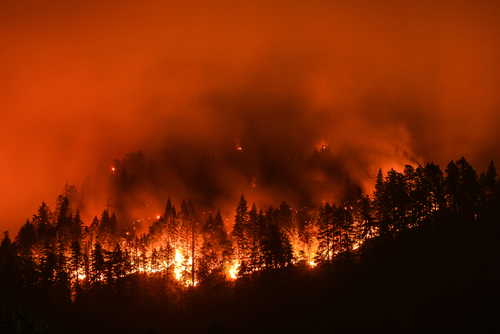
A new study from McGill University led by Jill Korsiak, a PhD student professor, originally published in The Lancet Planetary Health found that people exposed to wildfires have increased risk of lung cancer and brain tumors. Future wildfires are predicted to be more common, severe, and longer due to the changing climate, and are seen more and more as a global heath concern. Normally occurring in similar areas each year, researchers warn that those living nearby could be exposed to harmful pollutants on a long-term basis.
The study, titled “Long-term exposure to wildfires and cancer incidence in Canada: a population-based observational cohort study”—also conducted by Lauren Pinault, Tanya Christidis, Richard Burnett, Michal Abrahamowicz, and Scott Weichenthal—tracked over two million Canadians over a 20-year period and is the first to explore the connection between fires and cancer risk.
Researchers found that those within a 31-mile radius of wildfires over the past 10 years had a 10 percent increase in brain tumors and 4.9 percent increase in lung cancer compared to those living further out.
Not only do fires pollute air quality, but also soil, aquatic, and indoor environments. After the fire has stopped, some pollutants will return to normal levels, but others—such as heavy metals and hydrocarbons—may stick around longer.
“Many of the pollutants emitted by wildfires are known human carcinogens, suggesting that exposure could increase cancer risk in humans,” says Ms. Korsiak. Scott Weichenthal, an associate professor in the depart of epidemiology, biostatistics, and occupational health at McGill University, adds, “Exposure to harmful environmental pollutants might continue beyond the period of active burning through several routes of exposure.”
Researchers suggest more studies are needed to understand the mix of pollutants wildfires release, and that more work is needed to get better long-term estimates of associated health effects.







 © 2025 Mashup Media, LLC, a Formedics Property. All Rights Reserved.
© 2025 Mashup Media, LLC, a Formedics Property. All Rights Reserved.